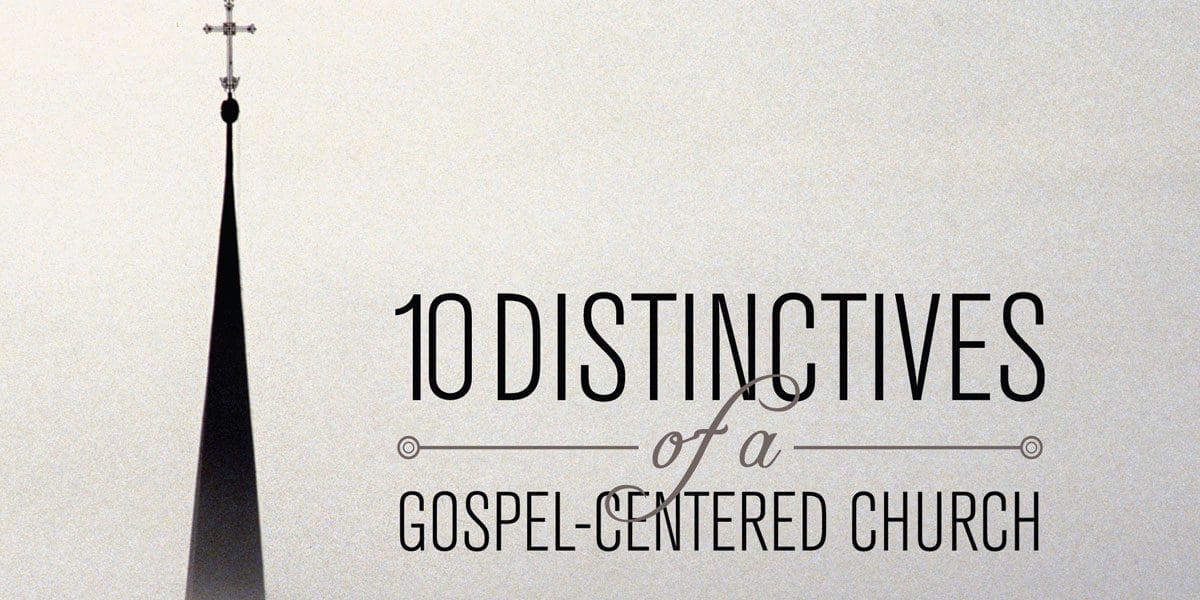If anyone sets his heart on being an overseer, he desires a noble task. 1 Timothy 3:1 (NIV)
Because there is one gospel, it stands that it must be for all people. What kind of people are going to get this job done? That’s what 1 Timothy 3 is about. We are looking today at gospel character. I want you to see the character and the competence of effective Christian leaders.
Chapter 3 is about leaders: “If anyone sets his heart on being an overseer, he desires a noble task” (v1). Another way to translate overseer is “elder” or “deacon.” Most of us are not called to be an elder or a deacon, so you may wonder…
What Does This Have to Do With Me?
Discernment: What to look for
Who should lead in the church? Who should we trust? Who should we follow? These are great questions in every church, and we need to know how to respond to them.
Leaders in our church are identified by the Nominating Committee with input from all of us in the congregation. Earlier this year you were invited to suggest names of people who might serve as lay leaders in the church. Many of you responded. You were given an outline of what to look for in thinking about suitable candidates that was taken right from 1 Timothy 3 and other similar passages of the Bible.
Those who serve us in identifying candidates for leadership take this very seriously. The biblical pattern is not to make a man an elder and hope that he will rise to the challenge. It is to look for people who show the character and competence that God uses in effective leadership.
They are the ones we should appoint as elders. They are the ones we should call as pastors. They are the ones we should send as missionaries. It is important that we know who God will use in effective ministry.
What we learn today will help all of us to grow in discernment. What should we be looking for in the leaders we elect, the pastors we call, and the missionaries we send? You should know that the selection of the wrong leaders has been the downfall of many a church.
Direction: What to aim for
“Here is a trustworthy saying: If anyone sets his heart on being an overseer, he desires a noble task” 1 Timothy 3:1 (NIV)
Every Christian should cultivate a desire for maximum usefulness to Jesus Christ. Some of you have that desire and you want to know how to pursue it. Should I go to seminary? Should I be in full-time ministry? Should I be considering serving overseas? The first things to pursue are right here in 1 Timothy 3.
I want to sound the trumpet with a celebration for lay leaders today. When Paul describes overseers and deacons, he is essentially talking about lay leaders in the local church who earn their living in the marketplace. Paul says that is a “noble task.” It is a wonderful thing.
“My prayer for us, O God, is that You will raise up young people who say as they go off to college ‘I want to be an engineer and I want to be useful as a leader in my local church,’ or ‘I want to be in business, or a teacher, and I want to serve others in my church.’” To set your heart on that is a noble thing. That is something to be fostered and encouraged.
How can you maximize your usefulness in God’s global mission? What should you pursue? How can you be effective in ministry? What we learn today applies in any sphere of leadership:
- If you are a father or a grandfather… God has made you an elder in your home. This is for you.
- If you lead a team… at work, teach a class at school, or if you are captain of a sports team, God has given you the privilege of leading others. This is for you.
- If you are a Christian… this is for you.
The reason these qualities are set out for leaders is that they are the qualities God calls and seeks to produce in the life of every Christian.
Leaders are not called to a different life from the congregation. They are to model the same life to which we are all called. God looks for this character and competence in leaders because it is His pattern for all, and they are to be an examples for the whole family of God.
- If you are young… this is for you.
Paul says “Train yourself to be godly” (1 Timothy 4:7). Go after what will make you most useful for Jesus Christ. If you are young, my prayer for you is that God would give you a great desire to be really useful to Jesus Christ and that you’d go hard after that early on in life.
- If you are disappointed or discouraged… this is for you. Maybe you are saying “I have not done what I wanted to do. Where I am is not where I want to be.” You look at your life and you’d like to roll the clock back and have a second run.
If that is where you are today, I want you to remember that Christ came to redeem. He came to restore what was lost, to recreate what was destroyed. What we are learning today can be your future— even if it has not been your past. Look at where God’s grace can bring you. See what His redeeming love can do in your life.
Gratitude: What to give thanks for
As I have studied 1 Timothy 3 this week, my own heart has been moved with thanksgiving to God for the leaders He has given us in this church. I’m thinking of our pastors, elders, board members, missionaries and our lay ministry leaders.
The reason I am so thankful is that I see so much of what Paul talks about here in these men and women. That is not always the case in every church, so we should not take this for granted. Where you see it, I want to encourage you to thank God for it.
It has often been said that the life of a church rises and falls with the quality of its leaders. That’s true. But there’s more. The life and health of a local church depends in large measure on the character and competence of its leaders and on the readiness of the people to follow their lead.
The great debate over structure
The Bible gives clear principles for leadership but not fixed patterns or structures for leaders. When you look at the qualities sought in the deacons and you put them alongside those for elders, the similarities are more striking than the differences.
Throughout the history of the church there has been great debate about what the structure for leaders should be.
Episcopalians have their bishops…
Presbyterians have their presbyteries…
Baptists have their deacons…
Free churches have elders and boards…
And all of them will refer back to 1 Timothy 3 as their basis. We could debate these things for a long time without ever resolving them. What is of first importance is not the precise way in which the church is structured—that will vary from place to place and from time to time. What is of first importance is the quality of leadership at every level.
The Character of an Effective Christian Leader
The first thing to look for, cultivate and thank God for is…
Wise judgment
You see that in the words: “temperate,” “self-controlled,” “respectable” (v2), and “not given to drunkenness” (v3).
a. Temperate (v2)
Temperate simply means “thoughtful.” Don’t make rash or impulsive decisions. Be watchful and vigilant—in your words and in your actions.
b. Self-controlled (v2)
You do that by developing self-control, which is the fruit of the Spirit. Self-control means that with God’s help you increasingly master your life, your tongue, your moods and your passions.
c. Respectable (v2)
Living a temperate life that is characterized by a growing self-control will cause others to hold you in high respect.
d. Not given to drunkenness (v3)
This belongs here because drunkenness makes these qualities impossible. A person who indulges in much wine loses self-control, and with it he loses the respect of others. At the same time he is unable to exercise wise judgment.
In discerning who should lead, who to trust, and who we should follow—look first at wise judgment. Look at the decisions, or the absence of decisions in a person’s life. What came of them? Look at what a person has said or done, and the positions they have taken in times of difficulty. Do you see the evidence of wise judgment? This is the first mark of those who are effective in God’s global cause.
The ability to lead others begins with leading yourself. Usefulness in serving others flows from effectiveness in controlling yourself. Here’s a goal: Make wise decisions in your own life, so that God may trust you with making decisions for others.
Healthy relationships
a. Not violent but gentle (v3)
Philip Ryken says: “Bullies are not eligible for ordination. Men who are verbally or physically abusive cannot be trusted to tend God’s sheep.”[i]
The elder cannot be weak. An elder has to confront, but he must have compassion. He must have understanding and sympathy that reflects the spirit of Jesus, and that comes through the rigors of life. The elder must be bent of being redemptive.
b. Not quarrelsome (v3)
Some people carry conflict within them. They have a contrarian spirit. They promote controversies (1 Timothy 1:3). They stir up trouble. It follows them around.
In discerning who should lead, who we should trust and who we should follow—look at a person’s relationships. Do you see gentleness? Do you see kindness? Are they contentious? Do trouble and conflict follow them? Do they sustain relationships well?
Moral integrity
a. Faithful in marriage:
“…the husband of but one wife” (v2)
This does not mean that a person has to be married in order to lead. Paul was never married. It does mean that a person must be celibate if single and faithful if married.
b. Faithful with money:
[The elder must not to be] “…a lover of money” (v3).
[The deacon is not to pursue] “…dishonest gain” (v8).
The most obvious evidence that a man is not a lover of money is that he is a generous giver. That will be a normal mark of an effective Christian leader—one who gives generously in proportion to their means.
The effective Christian leader is marked by sexual and financial integrity. He reflects the faithfulness of Christ in relation to marriage and in relation to money. If there is strength here, it will be for the good of the church. If there is weakness here, it will be for the harm of the church—both here and abroad in the global mission of the church.
To the young
Set your heart on being a “one woman man” early in life. Make a covenant with God about that. Other folks will flirt with as many people as possible. The more they flirt, the shallower they will become.
You be different. Set your heart on becoming the kind of person who will be faithful in marriage. Set your heart on being faithful with money early in life. Don’t waste it, and don’t hoard it—save well, spend well, give well, and begin that pattern of life while you are young.
Private and public
It is sometimes said that character is what you are in private. That’s only half the story. The character of a Christian leader is both private and public: “The overseer must be above reproach…” (v2). “He must also have a good reputation with outsiders…” (v7). The character we are talking about is more than a private holiness of the heart, it is the observable way that we live our lives, and it can be seen by others.
The Competence of an Effective Christian Leader
Doctrinal competence: Able to teach
“The overseer must be… able to teach…” (v2)
“Deacons… must keep hold of the deep truths of the faith with a clear conscience.” (v9)
This does not mean that all elders should be preachers. It does mean that the elders must grasp the truth, and be able to apply it to their own lives and the lives of others.
This is important because the church is “the pillar of the truth” (v15). What does a pillar do? The pillar holds up the roof. That’s what we are to do with the truth. We are to hold up the truth so that everyone can see it.
Elders must grasp true doctrine so that they can refute false doctrine (1:3). They much watch their life and doctrine closely (4:16). So a man who does not think doctrine is important, or who says “Doctrine is not for me,” should not be an elder or a pastor.
It is the special calling of elders and pastors to make sure that the Word of Christ is central in the church. So, the word of Christ must dwell in them richly (Colossians 3:15).
If you want to maximize your usefulness to Christ, deepen your grasp of the great doctrines of the Christian faith. This is not a side interest for a few specialists; it is a core competence for those who want to be useful in the church.
Personal competence: Able to manage
“[an elder] must manage his own family well…” (v4)
“If anyone does not know how to manage his own family,
how can he take care of God’s church?” (v5)“A deacon must… manage his children and his household well.” (v12)
A man’s ability to lead others will be seen first in the way that he manages his own home and family. Every home has its pressures and its own problems. This is not saying that if there is stress in a man’s personal life he should not be a pastor or an elder.
The key issue is a man’s ability to manage his life and to give leadership to his family. How does he manage his own household? Is there order in his home or is it chaotic?
Every home is chaotic at times, isn’t it? What is important here is that as God brings order out of chaos, an effective leader has the ability to do that as well. If a man cannot bring order to his own home, how can he bring order to the house of God? If he cannot manage his own life how can he help in the lives of others?
God brings order out of chaos. So kids, if your room is a mess and today you go and tidy it, you are doing something that reflects the character of God!
I think this is where hospitality comes in (v2). The home that is disordered will usually be closed to others. The home that is well-managed will typically be a home that is open and welcoming to others.
The man who will be effective in leading the church as a pastor or elder will be a man who manages his own family well. Are his finances well managed? Is his home well-ordered? Do his children regard him with respect?
There’s an order here. Begin by managing yourself. As you grow in managing yourself, you will do a better job of managing your family. Build success there, and you will grow in usefulness to Christ. The principle is simple: “He who is faithful with little can be trusted with much” (Luke 16:10). But trusting those who have shown themselves faithless in little is a recipe for disaster.
A word to the wives of Christian leaders
I want to say a word about the wives of pastors, elders and other leaders because Paul does here: “In the same way, their wives are to be women worthy of respect, not malicious talkers but temperate and trustworthy in everything” (1 Timothy 3:11).
A man’s wife can make or mar his ministry. Make it your prayer that you will expand your husband’s usefulness to Christ. If he is a godly man, he will already be praying this for you.
Cultivate a deep desire in your own heart that your husband should become everything God calls him to be. Do everything you can to contribute to that, and be ready to change any pattern of behavior that would limit the work that God might do through him.
Spiritual competence: Able to stand
Paul identifies two primary pressures that come to spiritual leaders as they carry out their ministry.
a. Pride: The enemy within
“He must not be a recent convert, or he may become conceited and fall under the same judgment as the devil.” 1 Timothy 3:6
Pride is the enemy within. Pride is the root of all evil. It was the beginning of Satan’s fall. Has God given you success in personal life? Has God blessed your family with an honor roll student? Do you know the grace of God enough to handle this will humility? Pride comes before a fall. The Bible says “When pride comes, then comes disgrace” (Proverbs 11:2).
b. Disgrace: The enemy without
“He must also have a good reputation with outsiders, so that he will not fall into disgrace and into the devil’s trap.” 1 Timothy 3:7
Satan delights when leaders fall. He wants them to fall into disgrace so that he can harm the church. In appointing leaders, it is always right to ask “Is there anything in your life that, if it was known, would hinder the work of the Gospel?” I want to invite you to pray for your leaders in this respect.
Richard Baxter wrote a book several hundred years ago about Christian leaders watching our own lives and hearts:
“Take heed to yourselves, because the tempter will more ply you with temptations than other men… As he hateth Christ more than any of us… so doth he hate the leaders under Him, more than the common soldiers: He knows what a rout he may make among them, if the leaders fall before their eyes… Take heed, therefore, brethren, for the enemy hath a special eye on you.”[ii]
Did you know that Satan had a special eye on you the day you were converted? Remember that, and pray for your leaders.
When I looked at the character and competence of a Christian leader, as I did all this week, I responded just like you did. God has called me to be a pastor. “Who is sufficient for these things?”
The answer to that question is the sufficiency of God: “Not that we are competent in ourselves to claim anything for ourselves, but our competence comes from God” (2 Corinthians 3:5). Not one of us would appoint ourselves to Christian leadership.
This character and competence…
…is supremely exemplified in Christ
a. He is the Overseer
“For you were like sheep going astray, but now you have returned to the Shepherd and Overseer of your souls.” 1 Peter 2:25 (NIV)
b. Christ is the Deacon
What does deacon mean? It literally means “one who serves.” The first deacons were appointed to serve tables (Acts 6). Jesus says “I came among you as one who serves” (Luke 22:27). “I did not come to be served but to serve [literally “to deacon”] and to give my life as a ransom for many” (Mark 10:45).
He is the Teacher who is Himself the Truth.
He is the King who rules and manages his own household well.
He is the Sage who is the fount of all wisdom.
He is the Champion who takes His stand against the enemy and prevails.
He is the Servant who gives his life as a ransom for many.
He is the Overseer who guards your soul from danger.
He is the Great Shepherd who brings all His sheep into His eternal fold,
and never loses one who is trusted to His care.
Christ is able to produce this character and competence in you. Think about what Christ can make of you! He may never call you to be an elder or deacon. But he can form the character and competence of an elder or a deacon in you.
Not one of the leaders in the church where Timothy served at Ephesus had a Christian background or upbringing. When they were converted they had all kinds of baggage. But when Christ takes possession of a person’s life, He changes that life from the inside. By His Holy Spirit, He reproduces His life in you!
[i] Philip Ryken, 1 Timothy: Reformed Expository Commentary, p. 112
[ii] Richard Baxter, The Reformed Pastor, p. 74




